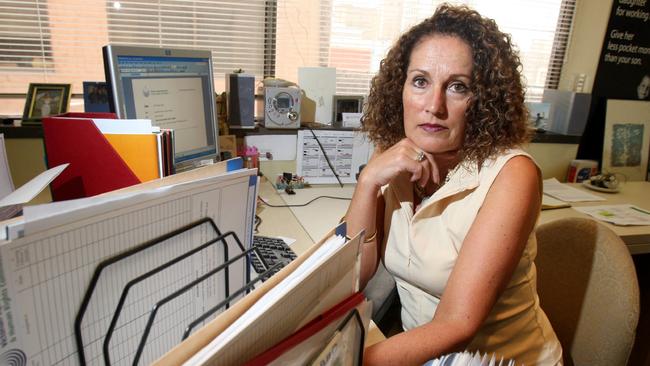Helen Szoke to probe Australasian College for Emergency Medicine racism case
Former human rights discrimination commissioner and Helen Szoke to investigate emergency medicine case.

The Australasian College for Emergency Medicine has appointed former human rights discrimination commissioner and Oxfam Australia chief executive Helen Szoke to head its inquiry into accusations of systemic racism.
The college launched the “expert advisory group” after The Australian revealed details of a formal complaint from a group of 33 doctors who found that in the latest cohort, for the second half of 2016, white physicians were 13 times more likely to pass to become emergency specialists than “non-whites”.
The terms of reference provided to the advisory group are wide and the college has said it “accepts readily” its responsibility to “eliminate discrimination”, should it be found to exist.
“The college recognises that discrimination can have a serious impact on those affected by it: it demeans the worth of individuals; it prevents our people from reaching their true potential; and it causes the loss of highly desirable talent from our profession,” the college said in setting out the terms of reference.
In letter to the college, also sent to The Australian, the complainant doctors welcomed the inquiry being launched as evidence the school understood the “seriousness of our compliant”, but said ACEM had failed to “expressly address our complaint at all”.
The 33 complainant doctors are seeking to have their failing of the 2016 program overturned on the grounds the results were “racially discriminatory”.
The school responded that so as to enable the issue to be “considered in a manner that reflects its seriousness” it would not handle the matter as a reconsideration of exam results but rather as a complaint, which would be dealt with under the advisory’s committee’s wide terms of reference.
Ms Szoke, who was the federal race discrimination commissioner with the Australian Human Rights Commissioner before leaving to head charity Oxfam Australia, will be joined by deputy Professor Ron Paterson, a former New Zealand health and disability complaints commissioner.
The advisory group will also include two current members of the ACEM board, a current ACEM trainee, and a recently graduated “ACEM fellow”, who obtained their primary medical training from a country other than Australia, NZ, the UK, Ireland, Canada or the US.
Professor Kichu Nair, the chair of the workplace based assessment committee at the Australian Medical Council — which oversees the licensing of specialist colleges including ACEM — will also be a member of the advisory group.
A group of 33 self-identified “non-white” doctors contacted The Australian in late January with a detailed 34-page complaint alleging that of the 204 candidates participating in the ACEM program for the second half of 2016, 88 per cent of whites passed the key clinical exam, compared to just 6.8 per cent of non-whites.
This was despite non-white doctors comprising more than one-quarter of all candidates.
Numerous doctors have written to The Australian raising concerns of similar experiences with “racism” at the college, and several other medical colleges, while many others have said there are instead other issues at play, such as poorer communication skills and less robust education among some foreign trained doctors.
ACEM said the advisory group would review current examination procedures to ensure they were “contemporary and appropriate” and to provide the college with “immediate, medium and long-term requirements”, considered necessary to “eliminate discrimination” in relation to examinations and other college processes.
The advisory group would also “undertake appropriate surveys, literature and other review analysis” to understand the “prevalence of discrimination, in relation to college examinations and initiatives to positively address this”.
“The (advisory group) has a broad remit of assessing discrimination in relation to the examinations, as well as any other college activities both at an organisational and systems level ... with particular reference to the fellowship clinical examination,” ACEM writes.


